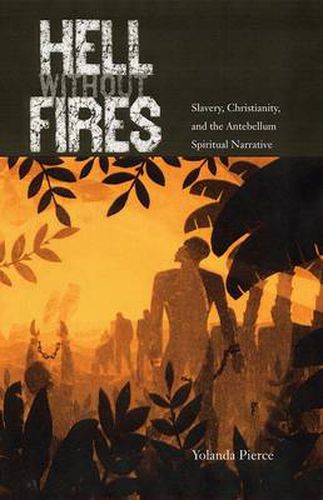Readings Newsletter
Become a Readings Member to make your shopping experience even easier.
Sign in or sign up for free!
You’re not far away from qualifying for FREE standard shipping within Australia
You’ve qualified for FREE standard shipping within Australia
The cart is loading…






Hell Without Fires examines the spiritual and earthly results of conversion to Christianity for African-American antebellum writers. Using autobiographical narratives, the book shows how black writers transformed the earthly hell of slavery into a
New Jerusalem,
a place they could call home. Yolanda Pierce insists that for African Americans, accounts of spiritual conversion revealed
personal transformations with farreaching community effects. A personal experience of an individual’s relationship with God is transformed into the possibility of liberating an entire community.
The process of conversion could result in miraculous literacy,
callings
to preach, a renewed resistance to the slave condition, defiance of racist and sexist conventions, and communal uplift. These stories by five of the earliest antebellum spiritual writers - George White, John Jea, David Smith, Solomon Bayley, and Zilpha Elaw - create a new religious language that merges Christian scripture with distinct retellings of biblical stories, with enslaved people of African descent at their center. Showing the ways their language exploits the levels of meaning of words like master, slavery, sin, and flesh, Pierce argues that the narratives address the needs of those who attempted to transform a foreign god and religion into a personal and collective system of beliefs.
$9.00 standard shipping within Australia
FREE standard shipping within Australia for orders over $100.00
Express & International shipping calculated at checkout
Hell Without Fires examines the spiritual and earthly results of conversion to Christianity for African-American antebellum writers. Using autobiographical narratives, the book shows how black writers transformed the earthly hell of slavery into a
New Jerusalem,
a place they could call home. Yolanda Pierce insists that for African Americans, accounts of spiritual conversion revealed
personal transformations with farreaching community effects. A personal experience of an individual’s relationship with God is transformed into the possibility of liberating an entire community.
The process of conversion could result in miraculous literacy,
callings
to preach, a renewed resistance to the slave condition, defiance of racist and sexist conventions, and communal uplift. These stories by five of the earliest antebellum spiritual writers - George White, John Jea, David Smith, Solomon Bayley, and Zilpha Elaw - create a new religious language that merges Christian scripture with distinct retellings of biblical stories, with enslaved people of African descent at their center. Showing the ways their language exploits the levels of meaning of words like master, slavery, sin, and flesh, Pierce argues that the narratives address the needs of those who attempted to transform a foreign god and religion into a personal and collective system of beliefs.